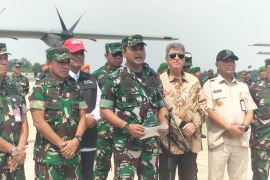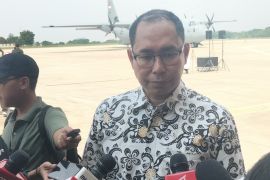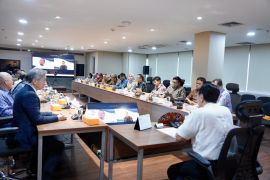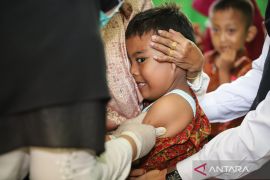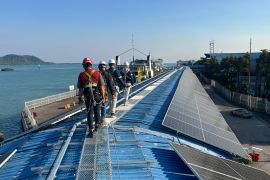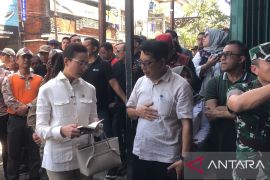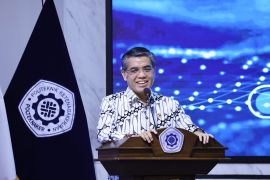Indonesian Ambassador to APEC 2013 M Wahid Supriyadi said at a Focus Group Discussion (FGD) on the strengthening of Indonesia`s connectivity and Asia-Pacific region held by Ministry of Foreign Affairs here on Friday that the three pillars were aimed at covering national interests to be promoted during Indonesia`s chairmanship of APEC.
"This FGD is important for us to strengthen national issues to be brought to the APEC Summit in Bali in November 2013, under the APEC Framework on Connectivity," he said.
According to him, the FGD was held to get suggestions and views from national stakeholders with regard to the APEC Framework on Connectivity as well as to support national connectivity as contained in the Master Plan for the Acceleration and Expansion of Indonesian Economic Growth (MP3I).
"The World Bank has launched its report that our connectivity index which is 2.01 percent is the lowest among ASEAN countries, even lower than that of Vietnam at 2.73 percent," he said.
Therefore, Supriyadi added Indonesia needs to take more action plans to strengthen the domestic connectivity with the Southeast Asia and Asia-Pacific regions.
He said the physical connectivity is designed to improve the quality and connectivity of trade, travel, energy, and telecommunication infrastructures where Indonesia has specifically proposed a long-term principal concept underlying the infrastructure development and investment in Asia and the Pacific.
He said the institutional connectivity focuses on behind the border issues of the trade and investment sectors as well as the efforts to increase coherence and interoperability between institutions and mechanism in the APEC economies.
Meanwhile, the people-to-people connectivity is aimed at deepening interaction, network and inter-community as well as professional mobility in the APEC region, he said. (*)
Editor: Heru Purwanto
Copyright © ANTARA 2013
